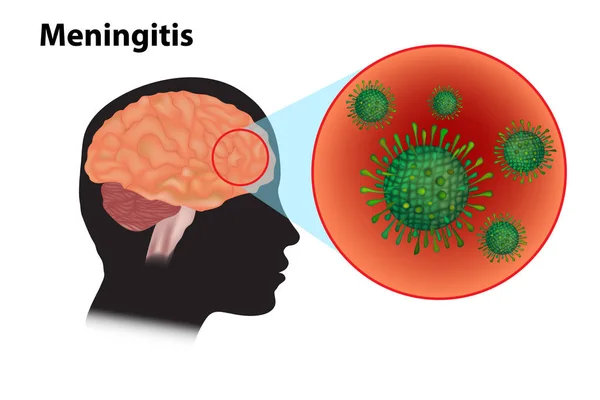Bacterial meningitis in children can lead to lifelong disabilities despite being a curable infection. Survivors of childhood bacterial meningitis may suffer long-term disorders affecting postural control, cognitive deficiencies, sensorimotor impairments, and motor dysfunction later in life.
Meningococcal disease has a lifelong impact, leaving a significant number of survivors with reduced IQ and difficulties with memory, concentration, and planning.
According to a study, one in three children who suffer from bacterial meningitis live with permanent neurological disabilities due to the infection.
The World Health Organization has developed a global plan to dramatically improve meningitis diagnosis and treatment, disease monitoring, health advocacy, support, and aftercare to defeat meningitis by 2030.
The study
This research, published in JAMA Network Open and led by Karolinska Institutet, sheds light on the long-term impact of this potentially deadly infection even with successful antibiotic treatment.
While antibiotics can often conquer the bacterial assault, the battle scars can persist. Children, particularly vulnerable and impressionable, bear the brunt of these lasting impairments. Impaired cognitive function, motor skills, sight, or hearing significantly disrupt lives, requiring constant support and leaving a profound mark on not just the individual but their entire family and society.
By analyzing Swedish data spanning 35 years, researchers compared over 3,500 meningitis cases in children with a control group. Following them for over two decades, the study unveiled a stark reality: compared to their healthy counterparts, meningitis survivors faced a considerably higher risk of neurological disabilities.
Structural head injuries (26 times more likely), hearing loss (almost 8 times), and motor impairment (nearly 5 times) topped the list of concerns. Overall, one in three meningitis survivors carried at least one neurological burden, three times the rate in the control group.
Recognizing the urgency, the research team, led by Dr. Federico Iovino, is spearheading the development of new treatments. Their goal: protect brain neurons during the critical window between infection and the full effect of antibiotics. Promising early results from human neuron studies pave the way for preclinical animal trials, bringing the vision of clinical application within reach.
The fight against bacterial meningitis isn’t over when the infection subsides. By understanding the long-term consequences and actively seeking neuroprotective solutions, we can offer children not just survival, but a chance at thriving beyond the shadows of this devastating illness.
ALSO READ: Migraine Raises IBD Risk, New Study Shows
Symptoms of bacterial meningitis in children
The symptoms of bacterial meningitis in children can include the following:
- Fever
- Headache
- Stiff neck
- Sensitivity to light
- Nausea or vomiting
- Poor appetite
- Irritability
- Lack of energy or drowsiness
- High fever (in infants)
- Constant crying (in infants)
- Difficulty waking from sleep (in infants)
- Bulging fontanelle (soft spot on the head) (in infants)









